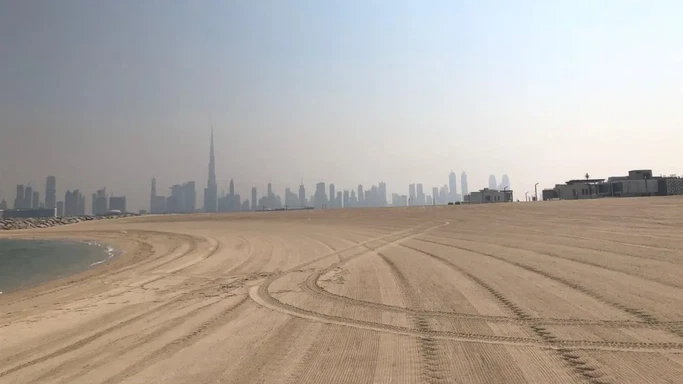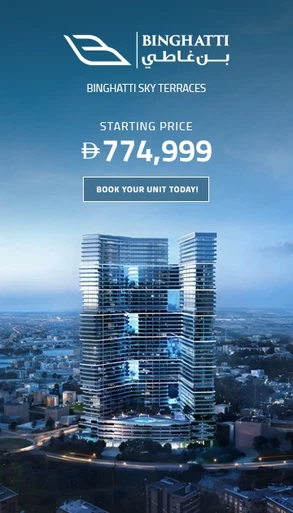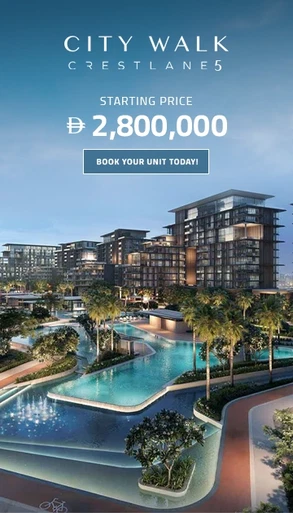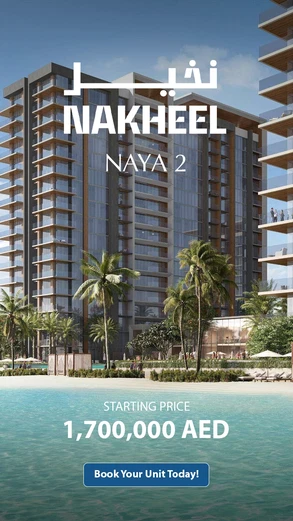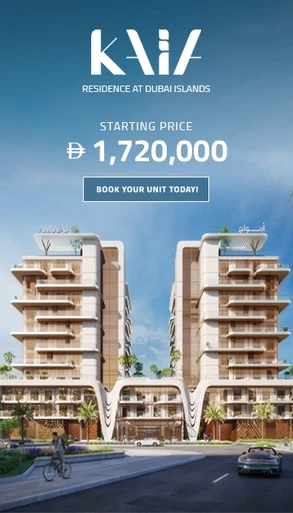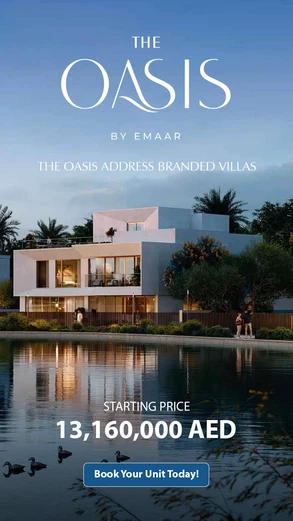Are you interested in buying land in one of the most sought-after real estate markets globally but unaware of essential details? Don’t sweat it—we have compiled a comprehensive guide offering insights into the types of ownership, key locations for investment, purchasing process, and other significant facets involved in the entire process.
Buying land in Dubai offers similar outcomes for residents and investors, offering them a gateway to Dubai's most secure real estate. With the city’s tax exemption incentives, central location, and innovative infrastructure, buyers are drawn to invest in commercial, residential, and industrial lands.
As the Dubai property market is undergoing a robust trajectory, it is an ideal time for residents and investors to acknowledge the accessible opportunities. So, let’s dive into detail to make a valuable and well-informed entry into the market.
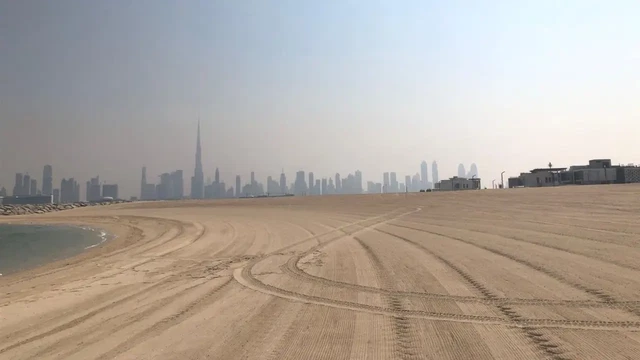
Understanding Land Ownership Laws in Dubai
The key to potential outcomes lies in a complete understanding of Dubai’s laws, zoning regulations, and market-specified regulations.
Buying property in Dubai is a game beyond just capital; hence, it requires a solid knowledge of market trends and various land types available.
Dubai’s growing dynamism has strategized land ownership laws into two structures, each with unique characteristics and accommodating diverse needs.
1. Freehold Land
Article 2 of Law No.3 of 2006 dictates that Dubai’s designated areas hold the status of freehold zones, implying ownership rights to foreigners and UAE nationals. Any foreigner or local possessing land in freehold areas has the complete right to sell, lease, or inherit the property without limitations.
Since its execution, this law has continued to attract tremendous interest from foreigners and expatriates, allowing them to invest in the city’s real estate with complete autonomy over their property. The best freehold areas with steady value appreciation include Jumeirah Lake Towers, Downtown Dubai, Dubai Marina, and others.
2. Leasehold Land
The law dictates that UAE and GCC citizens have the right to buy lands on leasehold property rights for up to 99 years. After a maximum period is reached, the property has to return to the initial developer or owner.
However, non-GCC nationals are granted access to leasehold lands, yet the control is restricted compared to freehold property ownership. While leasehold properties are more affordable, they suit those seeking investment in small-scale commercial projects or short-to-medium-term developments.
Understanding these land structures is crucial to making well-informed decisions about investments. Leasehold lands have certain limitations or development restrictions that don’t apply to freehold land.
The Dubai Land Department (DLD) spearheads all land transactions and related concerns to ensure rights over land ownership remain transparent and upheld.
Purpose of Buying a Land in Dubai
From residential projects to large-scale commercial developments, Dubai offers diverse types of land to meet different investment goals. The key categories of available lands include;
Commercial Land
As a major economic player on a global level, Dubai provides an extensive collection of commercial lands. These lands are primarily leveraged for retail and office spaces, the hospitality sector, and other business structures.
Districts like Dubai International Financial Center (DIFC) and Business Bay area are in high demand for commercial properties. Given the strategic locality and high foot traffic, the properties in these areas vary in price and typically range between an average of AED 200 and AED 2,500 per square foot.
Residential Land
Residential lands are most considerable in freehold areas like Arabian Ranches, Palm Jumeirah, and Jumeirah Village Circle. The plot usage depends upon the zoning regulations and may be utilized to build apartment buildings, villas, or townhouses.
Given the popularity and demand of each area, the presence of lifestyle amenities also affects the property values. A recently reclaimed area, Palm Jebel Ali, features land for purchase for high-end residential developments, presenting an attractive opportunity for early investors.
Industrial Land
Lands available in areas like Al Quoz, Jebel Ali, and Dubai Industrial City are zoned for factories, warehouses, and logistic facilities. Many plots are configured near highways, ports, and additional areas critical for large-scale distribution and production activities.
Compared to commercial and residential lands, industrial plots are more budget-friendly to become available for large-scale operations.
Agricultural or Mixed-Use Land
Agricultural plots are less common, with availability seen on Dubai’s outskirts. These plots are primarily used for sustainable development or farming.
Additionally, mixed-used lands foster flexible developments that include a combination of residential, commercial, and recreational purposes. Dubai South and Al Furjan lands are often used for mixed-use projects, allowing investors to incorporate different purposes on a single property.
Verifying the land’s intended use and zoning specification is essential to avoid fines or legal concerns. Investors can contact the DLD and Dubai Municipality to identify land usage in a specific zone.
Top Freehold Areas in Dubai To Buy Land – A Tip for Potential Gains
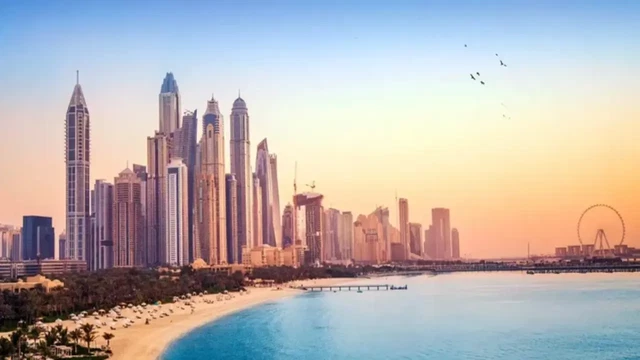
To retain Dubai’s position in the global real estate market, the freehold areas are well-regulated by officials to offer secure investment options abundantly. A few of Dubai’s top freehold districts include;
1. Downtown Dubai
A district that surrounds the breeze of luxury, Downtown Dubai is located in the heart of Dubai and houses Dubai Mall, Burj Khalifa, and other iconic landmarks.
The plots available within Downtown Dubai are highly valued and can be used for commercial and residential purposes. Due to its prime location and opulent ecosystem, land prices exceed AED 2,500 up to AED 3,107 per square foot.
2. Jumeirah Village Circle
JVC is a family-friendly locality with affordable housing lands available. The district is majorly popular among families and investors seeking plentiful facilities and a Pacific setting. The land prices in JVC average between AED 800 and AED 1,366 per square foot.
3. Palm Jumeirah
A destination renowned across the globe attracts investors for its upscale developments and waterfront villas. Land prices vary significantly and typically go as high as AED 5,860 per square foot.
4. Dubai Hills Estate
Developed by the reputable Emaar Properties, Dubai Hills Estate is viewed as one of the most luxurious communities with upscale residential plots available for investment.
The community offers a family-oriented nature with top-tier schools, parks, and a gold course that significantly uplifts property values. Land prices may go up to a maximum of AED 2,521 per square foot.
5. Dubai South
Home to Al Maktoum International Airport, Dubai South is a growing community with a mix of commercial, residential, and multi-purpose lands.
Investors seeking long-term appreciation and lands close to the logistics center can consider buying land in Dubai South, with land prices typically ranging up to AED 863 per square foot.
6. Dubai Marina
Dubai Marina is known for its sky-high developments and panoramic views of the Arabian Gulf. The vibrant urban life and waterfront location make it perfect for hospitality and residential developments. Land prices in Dubai Marina typically go up to AED 2,102 per square foot.
When choosing a location to buy land in Dubai, it is essential to consider factors like facilities within the community, transport modes, and potential for capital growth.
How to Buy Land in Dubai
Buying land in Dubai involves a comprehensive process that must be followed to ensure a secure investment that is aligned with DLD regulations.
1. Thorough Research & Site Visit
After the budget is vigorously decided, investors can explore different communities through site visits. Getting expert advice from a real estate platform is also a viable option for finding land that fits one's needs.
2. Consult a Real Estate Broker
Contacting a real estate broker always results in a smooth and efficient process of purchasing land in Dubai. However, investors must engage a DLD-registered agent to optimize the legitimacy of the transaction.
Additionally, well-regarded developers like DAMAC and Emaar provide comprehensive details on the specific project.
3. Reservation & Initial Deposit
Once investors plan to reserve a unit, a refundable upfront cost is required to provide enhanced security until the financial and legal processes are complete.
4. Legal Due Diligence
Collecting the necessary documents is crucial before visiting the DLD office to buy a specific plot or land. This includes identity verification documents (of buyer and seller), proof of funds, and a No Objection certificate (if required).
Real estate agents or legal advisors can significantly help smooth this entire step in accordance with Dubai real estate regulations.
5. DLD Registration & Issuance of Title Deed
Once all the documents are submitted and verified, the land will be formally registered with the DLD to finalize transference to the new owners. The Dubai Land Department typically charges around 4% of the property value as a registration fee.
6. Payment Process & Handover
Once the payment is cleared, the title deed is issued, declaring your ownership with complete rights over the purchased property.
Note: Make sure to settle all payments and legal documentation timely to avoid transference delays or future disputes.
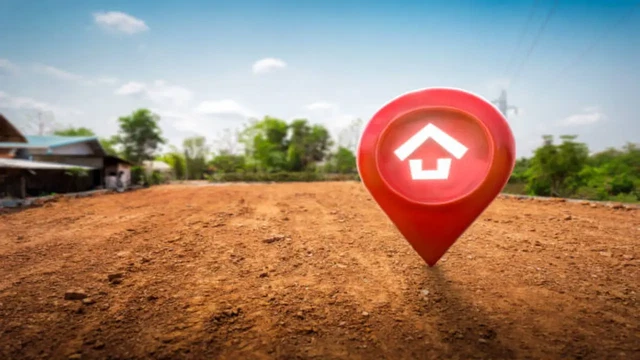
Financing Options for Buying Land in Dubai
Compared to the city’s dynamism, Dubai has few financing options. Investors can also consult financial advisors to identify the most suitable funding route based on their investment goals and financial conditions.
- Savings or Private Loans: Private loans and savings are very considerable among expatriates. International banks may also provide funding if the investors have a robust financial background.
- Bank Mortgages: Many banks in Dubai offer mortgages on specified conditions to buy land, supporting up to 50-60% of the land value. However, income stability and residency status influence the applicant’s eligibility for loan approval.
Determining Land Price in Dubai
Various factors influence land prices in Dubai; some of these factors include;
- Location: As detailed earlier, land prices in Dubai vary from place to place, implying that areas close to central Dubai with enhanced transport links indicate high land value. Property values in Dubai Marina, Palm Jumeirah, Business Bay, and Downtown Dubai are comparable to those in suburban districts.
- Market Trends: Given the economic factors, trajectory in tourism, and demands, Dubai’s real estate sector often experiences fluctuations. Freehold zones that are heavily tourist-centric have experienced a heightened appreciation, indicating the influx of tourists in the city.
- Infrastructure: Property values vary with infrastructure developments, mainly hospitals, schools, and shopping destinations. Due to continuous infrastructural constructions, growing areas like Jumeira Village and Dubai Hills provide land for purchase at competitive pricing.
How to Verify Plot Numbers and Land Details
Verifying land details and plot numbers is essential in Dubai to ensure a transparent transaction.
1. REST App
Dubai Land Department has introduced a REST App that efficiently allows owners to investigate plot details, ownership records, or other concerning information. The app provides details, accesses real-time information, and reduces fraudulent risks.
2. DLD Services and Title Deed
The Title Deed is the final proof of ownership issued by the Dubai Land Department upon registration. Buyers can check the originality of title deeds by visiting the DLD office or the Dubai REST Application.
Things to Consider Before Buying Land in Dubai
Investors must consider other factors to make their investment secure and appreciating for long-term gains, including;
- Development Limitations: Dubai Municipality regulates building codes and development restrictions. These typically include floor area ratios and limitations on building height. Understand zoning laws to ensure the plot is usable for its intended purpose.
- Environmental & Soil Assessments: Conducting environmental and soil assessments is crucial, specifically for industrial or commercial lands, to ensure the plot is suitable for construction.
- Check Investment Potential: Districts with planned developments and infrastructure appreciate faster. Engaging with a real estate broker can help you understand the appreciation potential for long-term gains.
- Access to Services & Utilities: Utilities like waste management and availability of electricity and water significantly influence the value of land and development costs.
Closing In
Buying land in Dubai is a valuable and rewarding investment, though understanding the requirements and process prior to purchase is critical. With clear differentiation between various funding options, leasehold and freehold lands, as well as legal implications, Dubai offers a lucrative platform to investors worldwide.
Careful consideration of the land type, zoning regulations, suitable location, and details to verify ownership is vital to making a secure investment.
Dubai’s growing landscape and ongoing infrastructure projects promise attractive opportunities and long-term appreciation potential. Investors planning to extend their investment portfolio can make a valuable entry into the Dubai real estate market.
Explore More...
